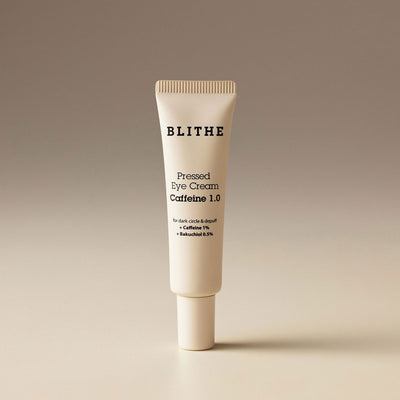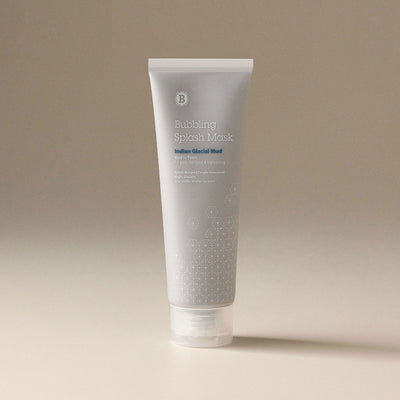In the quest for youthful, vibrant skin, two ingredients have made significant waves in the skincare industry: Traditional Retinol and Bakuchiol. Both ingredients promise rejuvenated skin, but they cater to different needs and skin types. Let’s dive into a detailed comparison to help you decide which might be the best fit for your skincare routine.
Traditional Retinol : The Powerhouse of Skin Renewal
Key Benefits
Retinol, a derivative of Vitamin A, stands out in the skincare world for its remarkable ability to expedite skin cell turnover, a vital process that rejuvenates the skin's surface and diminishes the visible signs of aging. This potent ingredient is known for its multifaceted approach to skin renewal. Not only does it help in reducing the appearance of fine lines, wrinkles, and uneven skin texture, but it also plays a pivotal role in unclogging pores, making it an invaluable ally for those battling acne and seeking a smoother complexion.

Moreover, retinol's efficacy extends beyond surface-level improvements. Its ability to stimulate collagen production dives deep into the skin's structure, fortifying its foundation, and enhancing elasticity. This leads to firmer, more resilient skin, effectively countering the natural loss of elasticity and firmness that comes with age. Additionally, regular use of retinol can lead to an overall brighter and more even skin tone, as it helps to fade dark spots and hyperpigmentation by accelerating the shedding of pigmented and damaged skin cells and promoting the growth of new, healthy ones.
However, the potency of retinol comes with a caveat; it can be quite powerful and may cause irritation, dryness, or redness, particularly in individuals with sensitive skin or those new to the ingredient. Hence, it's recommended to introduce retinol into your skincare regimen gradually, starting with lower concentrations and monitoring your skin's response. Pairing it with nourishing and hydrating ingredients, and diligent use of sunscreen during the day, can help mitigate potential side effects while allowing you to harness the full rejuvenating power of this celebrated skincare heavyweight.
Suitable Skin Types
Retinol is best suited for individuals who do not have overly sensitive skin. It works wonders for oily and acne-prone skin due to its ability to keep pores clear of blockages. However, those with extremely sensitive or dry skin might find retinol too intense, as it can lead to irritation and further dryness.

Contribution to Youthful Skin
The regular application of retinol can transform your skin, lending it a more youthful and radiant complexion. It’s especially effective in reducing visible signs of aging, like fine lines, wrinkles, and uneven skin tone, thanks to its skin renewal properties.

Bakuchiol: The Gentle Alternative
Key Benefits
Bakuchiol has rapidly gained attention as a natural, plant-based alternative to traditional retinol, offering an array of skin-enhancing benefits without the often accompanying irritation. Derived from the Babchi plant, bakuchiol mirrors the skin-renewing effects of retinol, effectively reducing the appearance of fine lines and wrinkles, evening out skin pigmentation, and promoting a firmer, more youthful complexion through the stimulation of collagen production.
What truly distinguishes bakuchiol is its gentler approach to skin treatment. Its anti-inflammatory and antioxidant properties make it a particularly soothing choice, suitable even for those with sensitive skin types.

These properties help in calming the skin, reducing redness and inflammation, and providing a protective shield against oxidative stress caused by environmental aggressors such as UV rays and pollution. This dual action of rejuvenating the skin while soothing and protecting it makes bakuchiol a versatile and inclusive ingredient, ideal for individuals seeking the anti-aging benefits of retinoids but are prone to irritation or have reactive skin.
Moreover, bakuchiol's gentle nature does not make it any less effective. Studies have shown that it can deliver results comparable to retinol, improving skin texture, enhancing firmness, and reducing the visibility of signs of aging, all while offering a more tolerable and pleasant user experience.

Its compatibility with other skincare ingredients and its stability in sunlight add to its appeal, allowing for flexible integration into day or night skincare routines. As a plant-derived, vegan-friendly ingredient, bakuchiol aligns well with the growing demand for clean, conscious beauty products, making it a cherished addition to the modern skincare arsenal.
Suitable Skin Types
Bakuchiol shines in its versatility. It’s suitable for all skin types, including those that are sensitive, dry, or acne-prone. If traditional retinol has proven too harsh for your skin, bakuchiol might be your savior. It’s also more favorable for daytime use since it doesn’t increase the skin's sensitivity to sunlight as much as retinol does (though pairing with sunscreen is still a must).
Contribution to Youthful Skin
Opting for bakuchiol means enjoying a gentler path to youthful skin. It’s renowned for delivering smoother, firmer, and more even-toned skin without the common side effects associated with traditional retinol. Its soothing nature also ensures that your skin’s natural barrier remains intact and radiant.
In Conclusion
Both retinol and bakuchiol offer pathways to achieving youthful and radiant skin, each with its own set of benefits and suitable skin types. Traditional retinol may be your choice if you're looking for a powerful agent against signs of aging and have skin that can tolerate potent ingredients. On the other hand, if you prefer a gentler, more soothing approach, especially if you have sensitive skin, bakuchiol could be your ideal match.Understanding your skin’s needs and how it reacts to different ingredients is key. Whether you choose retinol’s intensity or bakuchiol’s gentleness, both promise a journey towards a more youthful, vibrant complexion.










Leave a comment